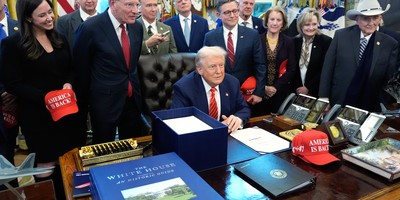While political analysts too often divide the electorate into tiny monolithic voting blocks for nothing more than the ease of discussion, the Iowa, New Hampshire and Michigan primaries reveal that the “youth vote” really does matter. Americans age 18 to 29 have represented a significant percentage of all caucus voters in the primaries thus far, 18% in Iowa, 16% in New Hampshire and 15% in Michigan, according to the Center for Information and Research on Civic Learning and Engagement (CIRCLE).
Barack Obama has overwhelmingly won the Democratic youth vote in Iowa and New Hampshire (and arguably in Michigan too, as more young people voted for “uncommitted” than Hillary Clinton). Young Republican citizens voted for Mike Huckabee in Iowa, John McCain in New Hampshire and Mitt Romney (although by a small margin) in Michigan. The Republican youth vote is up for grabs—and grabbing it is exactly what the GOP candidates should try to do in the upcoming primaries.
GOP candidates should follow the lead of the Democratic candidates by paying more attention to young voters—not only because they have already made a difference in the primaries, but also because their recent increases in election day voting turnout suggests they will play an even bigger role in the 2008 election. The national youth voter turnout rate was 49% in 2004, jumping 9% between the 2000 to the 2004 presidential elections, and representing the highest youth voter participation in over a decade, according to CIRCLE. This was the greatest increase among any age group between 2000 and 2004. In 2004, young voters age 18 to 29 were registered to vote at the highest rate in 30 years and actually cast 16% of the votes.
This increase in voting by young people is not limited to presidential races. In the 2006 congressional elections, the voter turnout rate among 18 to 29 year-olds increased by three percentage points from the 2002 congressional elections, representing 11.2% of all votes, according to CIRCLE. Recent elections show a trend of young people becoming more and more likely to vote, and the GOP candidates should encourage, embrace and harness this civic-mindedness.
Recommended
Republican candidates should also reach-out to young voters because they are a potentially huge untapped voting block. As compared to about a 70% turnout rate for other age groups in 2004, the 49% voting turnout among youth leaves the candidates much room for growth. With the ease of voting, there is no compelling reason why young people should not be voting at the same rates as the rest of the population. The GOP candidates should look beyond persuading habitual voters and try to capture those who do not normally vote. And the youth vote provides a promising place to do so.
Furthermore, this strategy is nothing new—from the start of the race, the candidates have been campaigning to win the votes of specific minority segments of the population. The candidates should look at the numbers and commit more time and effort to appealing to young voters. It only makes sense—take the Saturday primary in Nevada for example. In Nevada, young people age 18 to 29 represent 22% of the voting age population, while Hispanics (the largest minority group in Nevada) represent only 18% of the voting age population, according to CIRCLE. A candidate could be pushed over the edge to victory as easily by the youth vote as the Hispanic vote. The number of potential votes speaks for itself.
But it is not just about votes. Who created Facebook, the latest tool being used in the presidential campaigns? A 19-year-old named Mark Zuckerberg. Young people are creating new and better ways to connect to each other. With the latest technological knowledge and some free time, a college student could easily come up with the next big political advertisement in a matter of hours. And young people, especially college students, often have more free time than any other segment of the population to volunteer for campaigns doing anything, from making phone-calls, to holding signs at rallies or passing out campaign paraphernalia. Beyond the votes themselves, young people are a valuable source of creativity.
But as a young voter myself, let me make myself clear. We do not want presidential pandering. We want a real leader. We want a visionary. We want a candidate who is not just against everything, but actually stands for something. We want to be inspired. Obama has filled this role for young Democratic voters and it has worked miraculously. But young Republican voters want more. We want a candidate who actually walks the walk. We want a candidate who takes responsibility for his actions and limits the responsibility of government. We want a candidate full of substance, not just rhetoric. If a candidate can give us this, we will give him the nomination.

























Join the conversation as a VIP Member